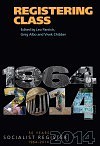Global
Between October 2010 and April 2012, over 250,000 people, including 133,000 children under five, died of hunger caused by drought in Somalia. Millions more survived only because they received food aid. Scientists at the UK Met Centre have shown that human-induced climate change made this catastrophe much worse than it would otherwise have been.… This is only the beginning: the United Nations’ 2013 Human Development Report says that without coordinated global action to avert environmental disasters, especially global warming, the number of people living in extreme poverty could increase by up to 3 billion by 2050. Untold numbers of children will die, killed by climate change.… If a runaway train is bearing down on children, simple human solidarity dictates that anyone who sees it should shout a warning, that anyone who can should try to stop it. It is difficult to imagine how anyone could disagree with that elementary moral imperative.… And yet some do. Increasingly, activists who warn that the world faces unprecedented environmental danger are accused of catastrophism—of raising alarms that do more harm than good. That accusation, a standard feature of right-wing attacks on the environmental movement, has recently been advanced by some left-wing critics as well. While they are undoubtedly sincere, their critique of so-called environmental catastrophism does not stand up to scrutiny. | more…
This is an abridged version of an article by the same title published in Review1, launched in 1965 as Monthly Review‘s literary supplement. Eleanor Hakim was the managing editor of Studies on the Left in its first few years. At the time she wrote this article she was teaching at the New School for Social Research in New York City. Her essay dealt with Brecht’s theory of the subversive role of the artist in confronting what he conceived as the “cultural apparatus”and how this affected his theory of epic theater. Hakim was particularly concerned with demonstrating that Brecht’s critical outlook was confirmed by the way that, after his death, the U.S. cultural apparatus (“the theatrical stock exchange” of her title) was manipulating and de-radicalizing his drama. In this context, she drew out the significance of Brecht’s revolutionary humanism.… —Eds.
A historical perspective on the economic stagnation afflicting the United States and the other advanced capitalist economies requires that we go back to the severe downturn of 1974–1975, which marked the end of the post-Second World War prosperity. The dominant interpretation of the mid–1970s recession was that the full employment of the earlier Keynesian era had laid the basis for the crisis by strengthening labor in relation to capital. As a number of prominent left economists, whose outlook did not differ from the mainstream in this respect, put it, the problem was a capitalist class that was “too weak” and a working class that was “too strong.” Empirically, the slump was commonly attributed to a rise in the wage share of income, squeezing profits. This has come to be known as the “profit-squeeze” theory of crisis. | more…
When confronted with any big decision in life, I hear my mom’s voice telling me to listen to my gut. This has worked for personal adventures ranging from backpacking to parenting, even though at times it can be hard to quiet the social noise that prevents us from “hearing” what our instincts have to say. In Greed to Green, Charles Derber explores a new twist on the familiar “listen to your gut” adage by framing climate change inaction as the collective problem of not having a gut feeling about this planetary threat. Rather, he explains that we as a society have cordoned off knowledge of climate change as an intellectual concept, and have not allowed it to migrate to the realm of the gut truth. | more…
The world at present is fast approaching a climate cliff. Science tells us that an increase in global average temperature of 2°C (3.6° F) constitutes the planetary tipping point with respect to climate change, leading to irreversible changes beyond human control. A 2°C rise is sufficient to melt a significant portion of the world’s ice due to feedbacks that will hasten the melting. It will thus set the course to an ice-free world. Sea level will rise. Numerous islands will be threatened along with coastal regions throughout the globe. Extreme weather events (droughts, storms, floods) will be far more common. The paleoclimatic record shows that an increase in global average temperature of several degrees means that 50 percent or more of all species—plants and animals—will be driven to extinction. Global food crops will be negatively affected. | more…
[In my] examination of struggle…from the side of workers.… I constantly came back to the Marxist concept of revolutionary practice, that simultaneous changing of circumstance and human activity or self-change—how people transform themselves through their struggles. But not only through struggles; they produce themselves through their daily activity. People are formed by what they do. So, for example, a person who is a wage laborer under capitalism is produced and produces himself in a certain way, as a person who is alienated, as a person who simply wants to consume because of the emptiness of capitalist production. We always have to ask the question, “what kinds of people are produced under particular relations of production?” What kinds of people are produced in an exchange relationship, which is “I will do this for you, if you do that for me” as opposed to functioning in a communal society in which people act in solidarity? You produce certain kinds of people under those conditions. | more…

This 51st annual Socialist Register completes the investigation of class formation and class strategies on a global scale begun with last year’s volume. Deploying an understanding of class as an historical social process—rather than an abstract sociological category or statistical artifact—the essays here investigate the concrete ways that working classes are being made and remade in the struggles against neoliberalism, austerity, and authoritarian governments. Taking stock of the changing balance of class forces as well as old and new forms of workplace, household and political organization, they uncover the class strategies being debated and adapted in different zones of the world. | more…

The essays in this book, many of which are either out-of-print or difficult to obtain, were written between 1955 and 1963 during one of the most fertile periods of E. P. Thompson’s intellectual and political life, when he wrote his two great works, The Making of the English Working Class and William Morris: Romantic to Revolutionary. They reveal Thompson’s insistence on the vitality of a humanistic and democratic socialism along with the value of utopian thinking in radical politics. Throughout, Thompson struggles to open a space independent of official Communist Parties and reformist Social Democratic Parties, opposing them with a vision of socialism built from the bottom up. Editor Cal Winslow, who studied with Thompson, provides context for the essays in a detailed introduction and reminds us why this eloquent and inspiring voice remains so relevant to us today. | more…

In this provocative study, economist Ernesto Screpanti argues that imperialism—far from disappearing or mutating into a benign “globalization”—has in fact entered a new phase, which he terms “global imperialism.” This is a phase defined by multinational firms cut loose from the nation-state framework and free to chase profits over the entire surface of the globe. No longer dependent on nation-states for building a political consensus that accommodates capital accumulation, these firms seek to bend governments to their will and destroy barriers to the free movement of capital. And while military force continues to play an important role in imperial strategy, it is the discipline of the global market that keeps workers in check by pitting them against each other no matter what their national origin. | more…

John Bellamy Foster is a leading exponent of the theoretical perspective that continues in the tradition of Baran and Sweezy’s Monopoly Capital. This new edition of his essential work, The Theory of Monopoly Capitalism, is a clear and accessible explication of this outlook, brought up to the present, and incorporating an analysis of recently discovered “lost” chapters from Monopoly Capital and correspondence between Baran and Sweezy. It also discusses Magdoff and Sweezy’s analysis of the financialization of the economy in the 1970s, ’80s, and ’90s, leading up to the Great Financial Crisis of the opening decade of this century. | more…
Three years ago, in December 2006, I wrote an article for Monthly Review entitled “Monopoly-Finance Capital.” The occasion was the anniversary of Paul Baran and Paul Sweezy’s Monopoly Capital, published four decades earlier in 1966.…The article…[discussed] “the dual reality” of stagnant growth (or stagnation) and financialization, characterizing the advanced economies in this phase of capitalism. I concluded that this pointed to two possibilities: (1) a major financial and economic crisis in the form of “global debt meltdown and debt-deflation,” and (2) a prolongation of the symbiotic stagnation-financialization relationship of monopoly-finance capital. In fact, what we have experienced in the last two years, I would argue, is each of these sequentially: the worst financial-economic crisis since the 1930s, and then the system endeavoring to right itself by returning to financialization as its normal means of countering stagnation. It is thus doubly clear today that we are in a new phase of capitalism. In what follows, I shall attempt to outline the logic of this argument, as it evolved out of the work of Baran, Sweezy, and Harry Magdoff in particular, and how it relates to our present economic and social predicament. | more…

For fifty years, the Socialist Register has brought together some of the world’s leading radical thinkers to address the most pressing issues of the day. Independent, searching, and erudite analysis is the hallmark of the Socialist Register, and this fiftieth-anniversary issue is no exception. Contributors to Registering Class examine some of our assumptions about class in the light of the global economic crisis and the many forms of resistance it has produced. | more…




